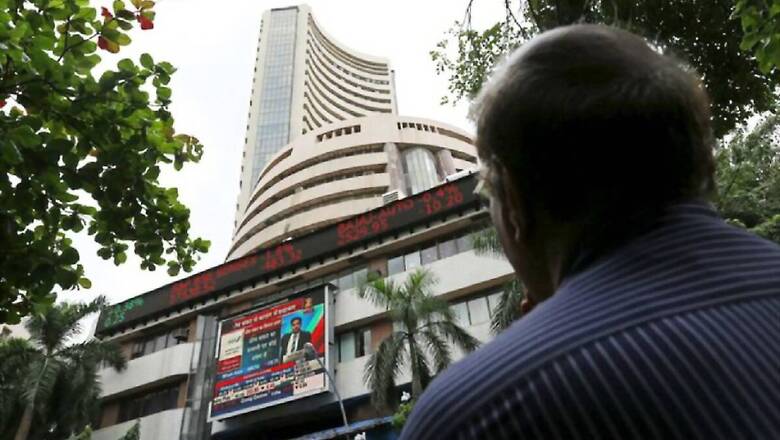
views
The lopsided view of how economy should be run was based on Jawaharlal Nehru’s view of the world. Nehru, who was educated in Cambridge, followed the Left-leaning Fabian school of thought. He liked the Soviet Union model of centralization of economic power, the domination of state and a full control over citizens. This controlling mindset led him to get a resolution passed by the Congress to say the public sector should have command over the economy, which is absurd. This kind of thinking has prevailed for many years, and is still prevalent in certain sections of society, including the bureaucracy.
Gandhi said, jis desh main raja vyapari hai, uss desh mein janta bikhari hai. How can anybody compete with a government doing business? It is using your money to compete with the private sector. This kind of opposition to the private sector, which consists of taxpayers who have a legitimate right to do business and for whose welfare the government exists, is an absurdity put in place by Nehru’s faulty thinking.
Many people who were part of the gravy train of the socialists and benefitted from the state patronage continued demeaning the private sector. It also led to Licence Raj—certain businesses were capturing licenses by bribing the government and the bureaucrats to shut out competition. The dominant philosophy was—profit is a dirty word.
Profit is not a dirty word, every business has to make profit. India has always been a free-market economy, built on trade and wealth creation; it was the richest country in the world. Then the British came, colonized and looted us. Trade is a part of Indian civilization and Nehru tried to impose his own views and create a fake narrative that businessmen are corrupt, that they are wrong, and that they make profit. Wealth creation is a dirty word only for certain sections of society who enjoy patronage under the centralization of power in Delhi. Certain sections of society have been brought up to believe that only government jobs are good.
In 1960s and ‘70s, the private sector was vilified in cinema—in Deewaar, the businessman is depicted as exploitative and corrupt. This narrative was created by the Left under Nehru’s patronage. And, this kept us poor. Let me give you some data. In 1950, India was the largest economic power in Asia, but by 1980, India had become one of the poorest countries in Asia because we had shut out foreign investment. While the public sector may look rosy from the outside, because you are trying to take care of employees, but there is no incentive for people who manage to work, and everything is controlled by bureaucrats. When there is economic centralization of power, there is corruption.
ALSO READ| Towards Privatisation: This is a ‘Maruti Moment’ for the Modi Administration, Writes RC Bhargava
We need an open, competitive market where the barriers to trade and business are low, there is freedom for everyone to enter and exit, and there are good regulations to foster competition and make sure no monopolies exist. Regulation should be done by Parliament. Business should not be run by government, but by the people.
For the political class, centralization of economic activities makes them agents of patronage, where people come to them for favours. It is like a law preventing the farmer from selling their land to anybody they want because you are protecting them. But by doing this, you are depriving the farmer of the fruits of their labour. The farmer should have the right to sell the land to the highest bidder. It is a crazy mindset to say only we know how to protect the farmer, and the farmer is incapable of protecting themselves.
Nehru’s flawed political philosophy has created a very corrupt, over-centralized state which tries to dominate economic activities of the citizen.
Governance and Bureaucracy
Bureaucrats by nature are not trained to do business, but to govern, using the power of the state. So, they should not be running the public sector (PSUs), and the task should instead be assigned to specialists who understand business. Bureaucrats are brilliant people and clear a hard examination, but they are not qualified to run businesses.
In a complex modern economy, there are many areas where the government lacks the expertise, because the bureaucracy is not trained or experienced enough in those areas. Areas like trade policy, currency management need specialists and specialization is difficult in bureaucracy because the officer is transferred every 2-3 years and does not get enough time to build expertise. In those areas, the government should have lateral entry to get people from outside.
ALSO READ| Narendra Modi is Right, IAS Cannot Deal with Everything. But That’s Only Half the Problem
But the IAS lobby will resist. It is a brotherhood, a closed club wherein you share the spoils and positions of power. An IAS officer, for example, is working for 30 years and is set to become a secretary. There are only 40 such positions, and you get someone from outside for 10 positions. Now, people who have worked for 30 years in the service thinking they will get these positions will feel deprived. So, they want to shut out everyone else and say it is only reserved for us. The political leaders may want people from outside, but this lobby will create impediments.
Prime Minister Narendra Modi is very clear that the government has to govern. Governance is protecting the borders of the country, delivery of justice, maintenance of law and order, managing the currency, managing foreign affairs and creating policies for public good. Policies that do not encourage favouritism and manipulation, allowing everyone to compete and do business on equal terms and not hurt public interest. He has said that it is the prerogative of the people of this country, and not the government, to do business. They are the ones who create wealth, tax-paying capacity and jobs. The government doesn’t create jobs, jobs are created by economic activity. And, government’s role is not to create economic activity.
Regulate, Leave Business to People
From 1950-80, India grew at 3.5 per cent a year and population grew at 2.5 per cent; 1980-90, India grew at 5.5 per cent, population grew at 2.25 per cent; 1991-March 2020, GDP grew from $275 billion to $2.93 trillion at 8.5 per cent a year and population grew at 1.6 per cent a year. In effect, the per capita income grew at 7 per cent and people’s income doubled every 10 years. That’s why we have become more economically prosperous. That is why we are a $3-trillion economy.
We have to give people the freedom to do business. Today, there are many areas that are controlled by the government—these controls, barring in a few areas, should go. Assets, barring a few, should be sold off. Nuclear plants, for instance, should be controlled by the government because there is a threat of misuse. In the power sector, one NTPC (National Thermal Power Corporation Limited) is enough; similarly, the government needs one big oil company for distribution of oil products.
ALSO READ| India Can’t Wait for the ‘PSU Culture’ to Die a Slow Death. It’s Time for Unsparing Reforms
Why should the government run an airline? It has only lost money. Government is not suited for competition, it cannot take fast decisions, and businesses require quick decision-making.
Government should divest all PSUs, barring a few. It should focus on doing things that only the government can do—building public infrastructure, running health systems and schools and colleges along with the private sector so that nobody is left out. Because, in health and education, there should be a guarantee—of equal access. For that, the government has to provide services because in a poor economy, many people do not have the means to avail them but they should not be left out. In other areas, the government just has to ensure there are enough regulations to protect consumers, to foster competition and prevent abuse.
(as told to News18.com)
This article is the fourth in the series on ‘Minimum Government, Maximum Governance’. You can read the other articles in the series here, here and here.
Read all the Latest News, Breaking News and Coronavirus News here


















Comments
0 comment